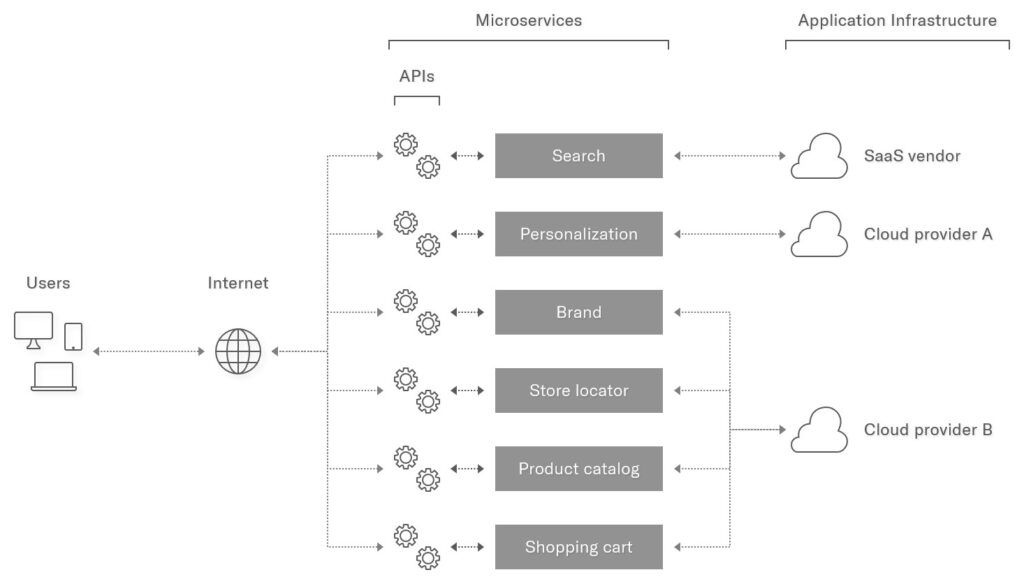What Are APIs?
API stands for “Application Programming Interface.”
It is a set of protocols, routines, and tools for building software applications.
An API defines the way software components interact with each other. It specifies how the different elements of a program should interact and communicate with each other, allowing for seamless integration between different applications and systems.
APIs can take various forms, such as web APIs that allow web applications to communicate with servers and databases, operating system APIs that provide access to system-level functionality, and software library APIs that provide pre-written code modules for developers to use in their own programs. APIs provide a standardized way for software components to communicate and interact, allowing for easier and more efficient development of complex software applications.
What Is API (Application Program Interface) Security?
API security refers to the measures and practices in place to protect Application Programming Interfaces (APIs) from unauthorized access, exploitation, and misuse. These security measures can include authentication, access controls, encryption, rate limiting, and monitoring, among others, to ensure that APIs are used only by authorized parties and that data transmitted through APIs is kept secure and confidential.
Why Do We Need API Security?
API security is essential to protect both the API provider and its users from potential threats and vulnerabilities. Without proper security measures in place, APIs can be exploited by attackers to gain unauthorized access to sensitive data, inject malicious code, or launch other types of attacks.

APIs can also be a target for distributed denial of service (DDoS) attacks, where the attacker floods the API with traffic, causing it to crash or become unavailable to legitimate users. This can result in significant business losses, reputation damage, and legal liabilities for the API provider.
Moreover, APIs often handle sensitive data, such as personal information or financial transactions, and are used by third-party developers and applications. Therefore, ensuring API security is crucial to maintaining the trust of users and protecting their data from breaches and leaks.
API security is essential to mitigate the risks of unauthorized access, exploitation, and misuse of APIs, safeguard sensitive data, and maintain business continuity and reputation.
How Can Checkmarx Help With API Security?
Checkmarx Approach to API Security

- Checkmarx provides comprehensive API security testing solutions that can help organizations identify and remediate vulnerabilities in their APIs.
- By using Checkmarx API security tools, developers can ensure that their APIs are secure and comply with industry standards and best practices.
- Checkmarx API security testing solutions use a combination of static and dynamic analysis techniques to identify security vulnerabilities in APIs, including SQL injection, cross-site scripting (XSS), and other common attacks.
- Checkmarx API security tools integrate with popular API gateways, making it easy for developers to incorporate security testing into their development workflows.
- With Checkmarx API security solutions, organizations can minimize the risk of data breaches, ensure compliance with regulatory requirements, and protect their users’ sensitive data.
Shift left with Checkmarx API Security for complete visibility into your API footprint.
Our unified platform integrates seamlessly into your SDLC, empowering developers to fix issues early and efficiently.
Discover How Checkmarx makes securing APIs easier
Book your custom demo and learn what makes our API security tool the right match for your enterprise.